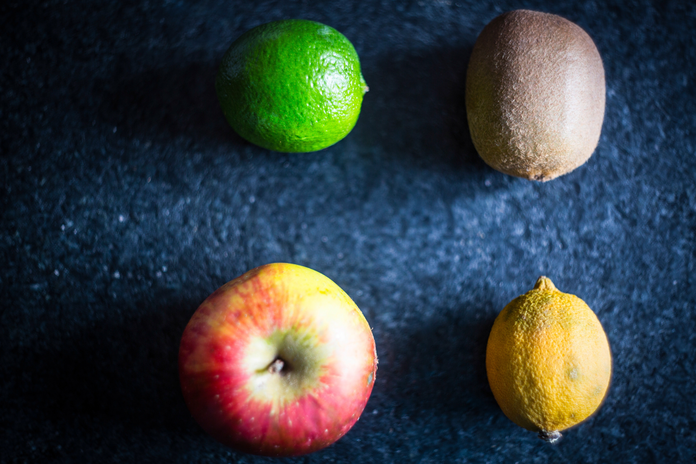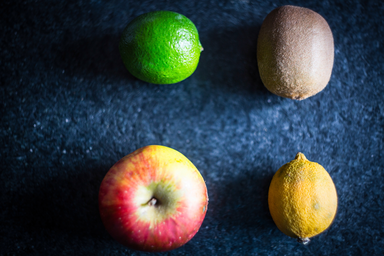February 22 to 28 is National Eating Disorders Awareness Week. We’ll be sharing information about this important issue throughout the week, from what to do if you or a friend is suffering from an eating disorder to how to love your body just the way it is! Be sure to check out all of our content here.
Take it from a skinny girl: being a “bag of bones” (thanks, grandma) isn’t all it’s cracked up to be. Clothes need some curves to bring the oomph-factor—and frankly, in my opinion, bikinis just look better when they’re hugging soft feminine bodies. But college, with all its stressors and its super-busy schedules, can really wreak havoc on a growing girl’s appetite! From illness, to stress, to eating disorders, there are plenty of reasons that a collegiette could end up bringing too little weight to the scale. So what’s a girl to do if she has dropped a few pounds, or even if she could use a few extra so her grandmother will stop clucking about her slim chances of finding a husband? And is it really worth the effort?
It’s worth it—and here’s why:
While being overweight can be unhealthy, so can being underweight. After suffering from anorexia for two years in high school, Morgan* was starting to feel the effects. “At 5’6”, I was just 105 pounds,” Morgan says, “After two years of this, my hair began falling out, I was constantly cold, I fainted about once a month, I still hadn’t gotten my period, and my doctor explained that I was increasing my risk for infertility and uterine cancer.”
It’s no wonder that, in a survey of United States college students, 47.1 percent rated being underweight as more dangerous than being overweight and 88.2% said that they would worry more about an underweight friend than an overweight one. In addition to the very serious health concerns which Morgan’s doctor raised, being underweight can lead to a whole host of other issues, including osteoporosis, amenorrhea, increased susceptibility to infection, impaired recovery from illness, and so on. Plus, being underweight can result in fatigue and as a busy collegiette we need all the energy we can get!
If, for whatever reason, you need to gain weight, it should be easy, right? Just super-size it and eat a lot of junk food, right? Wrong. While a little junk food won’t kill you, eating too much of it—even when trying to gain weight—can be unhealthy and make you feel sick, tired, and unmotivated to continue your weight gain plan. And although magazines are full of advice about how to drop those ten pounds, there is little good advice out there for those of us who want to, and even need to, put on weight. So here, from Her Campus to all the skinny girls out there, is a guide to how to gain some healthy curves.
What it takes:
Gaining weight comes down to basic math: take in more calories than you put out. According to the McKinley Health Center, it takes about 3,500 extra calories to gain a pound, so since gaining 1-2 pounds per week is a pretty good goal (that way some of it can be muscle) you should aim to add at least an extra 500-1,000 calories to your daily intake.
And if you love moving, and I know I do, don’t despair! Thirty minutes of exercise, enjoyed four or five times per week, doesn’t only keep you in shape, but also increases your appetite and makes some of that weight gain become muscle gain. You actually don’t have to sit on a sofa all day to gain the weight.
What you want to do is try to include a mixture of strength training and cardio in your routine, but do be sure not to overdo it. “Regular exercise for about 30 minutes a day helps [increase appetite], but don’t over-exercise or you will have to also make up the calories burned,” says dietitian Joanne Larsen, of www.dietitian.com.
How to do it:
Gaining is no fun if you have to count every calorie and weigh every ounce. Plus, what busy collegiette has time for that? Instead of fixating on numbers and amounts, follow these simple tips and gain weight the healthy and easy way.
- Eat when you’re hungry. This one sounds like a no-brainer, but it’s really important. Since you’re trying to gain weight, you want to eat as much, and as often, as possible. Don’t limit yourself to three square meals a day—instead, keep nutritious, calorie-rich snacks on hand and munch whenever you have an appetite. “Plan ahead” advises Larsen. Some of my favorite snacks are granola bars in between classes (chocolate + granola + nuts = YUM) and nut/dried fruit trail mixes before bed (I love adding prunes—and, no, I’m not over ninety).
- Increase your portions. This one is, again, pretty obvious. While lots of people have to worry about proper portion sizes, so that they don’t consume too many calories unwittingly, you want more calories. So even though your friend may stick to just a slice of toast or two at breakfast, feel free to enjoy three or four slices. Every body has different needs and the ‘proper’ portion for someone else may not be right for you—especially if you’re trying to gain weight and they’re not. After her doctor’s warnings, which made her realize that her poor eating habits and body image could negatively affect her long-term health, Morgan learned to listen to her body. “For the first time in years, I was eating because I really wanted to. I no longer felt guilty about eating, so I indulged in ice cream, second helpings of dinner, carbs—whatever I wanted, I ate! Within just a few months, I had gained ten pounds,” says Morgan.
- Make every bite count. It can be hard to eat a ton of food and no one wants to feel stuffed and bloated all the time. That’s why 64.7% of college students surveyed said that they would rather eat richer food than eat more food to gain weight. To increase your caloric intake without having to add a ton of food, focus on caloric density. Go for things that pack more punch per bite. Choose granola over cheerios, dense pumpernickel and rye breads over fluffy white breads, bananas over oranges or apples, and starchy veggies, like corn, peas, winter squashes, and potatoes, over watery veggies, like celery, cucumber, and lettuce. Nutrition Diva and licensed dietitian Monica Reinagel says, “Instead of salad, load up some raw vegetables with plenty of hummus or guacamole.” By maximizing each mouthful, you get more calories without the overstuffed discomfort. Because being bloated is not fun.
- Enrich your foods. This is where you can get really creative to make some fun, and tasty, creations. Add honey, dried fruits, chocolate chips, and nuts to your cereal. Add sliced banana and trail mix to your PB&J. Make a dressing of olive oil and spices for your steamed veggies. Top a salad with sunflower seeds, raisins, olive oil, and chickpeas. All bets are off and creativity is on—by enriching your foods, you’ll not only boost your weight gain efforts, but you might even discover some cool new recipes. Who knows? You may become the next Julia Child or John Ash! For some easy, but effective, additions, Reinagel advises adding a handful of nuts to cereal, peanut butter to a smoothie, and avocado slices and/or cheese to a sandwich.
- Make your drinks work for you. Instead of just reaching for tea, coffee, water, and diet beverages, try to go for more nutritious, calorie-containing beverages. Smoothies, chocolate milk, fruit juices, vegetable juices, and shakes are some great options. Reinagel suggests this healthy (and yummy!) smoothie: “Get those extra calories from foods that are also doing something for you nutritionally!” says Reinagel. If you want to sneak in some extra veggies, throwing a handful of spinach into a fruit smoothie works great—you can’t taste the difference (we’re serious!) and it colors your drink into a cool green. Liquid supplements, like Ensure, Instant Breakfast, and Boost, can also help. Since they can fill you up before meals, Larsen recommends these for bedtime.
- Indulge. Hey! You’re trying to gain weight! So if you want dessert, or if that Ben & Jerry’s Chubby Hubby is calling your name, don’t hesitate. “Sugar is not the enemy nor are desserts,” says Larsen. A little indulgence makes life sweeter and treats can easily fit into a healthy weight gain plan, as long as they don’t crowd out other foods. Start with a baseline of healthful foods, like grains, dairy, and legumes to get all the nutrients you need, and let your treats be the icing on top! Since you do want to be healthy, Reinagel advises keeping the junk to a maximum of 10% of your calories.
There is so much to gain by gaining some healthy weight. After conquering her eating disorder and gaining the weight her body needed, Morgan says, “Not only do I feel healthier, but I have a better relationship with food. My hair stopped falling out and I started my period. Another upside to gaining weight? I’m actually able to fill out a bra now.” From plain-old feeling better, to living longer, to finally getting those curves to fill out your clothes, you have nothing to lose! And with our tips, gaining weight can be as easy as slicing a piece of pie.
Unsure of whether or not you need to gain weight? Check out the Healthy Body Calculator® to see if you’re in a healthy weight range for your height. And, of course, any good weight gain plan can benefit from the advice of a trained professional, so visit your campus nutritionist for even more ways to put on the pounds the right way.
*Name has been changed.
Think you might be suffering from an eating disorder? The National Eating Disorders Association has a free and confidential screening to help you determine next steps. If you’re looking for more information, be sure to call the NEDA helpline. Looking for ways to help spread the word? Find out how you can get involved on your campus.

